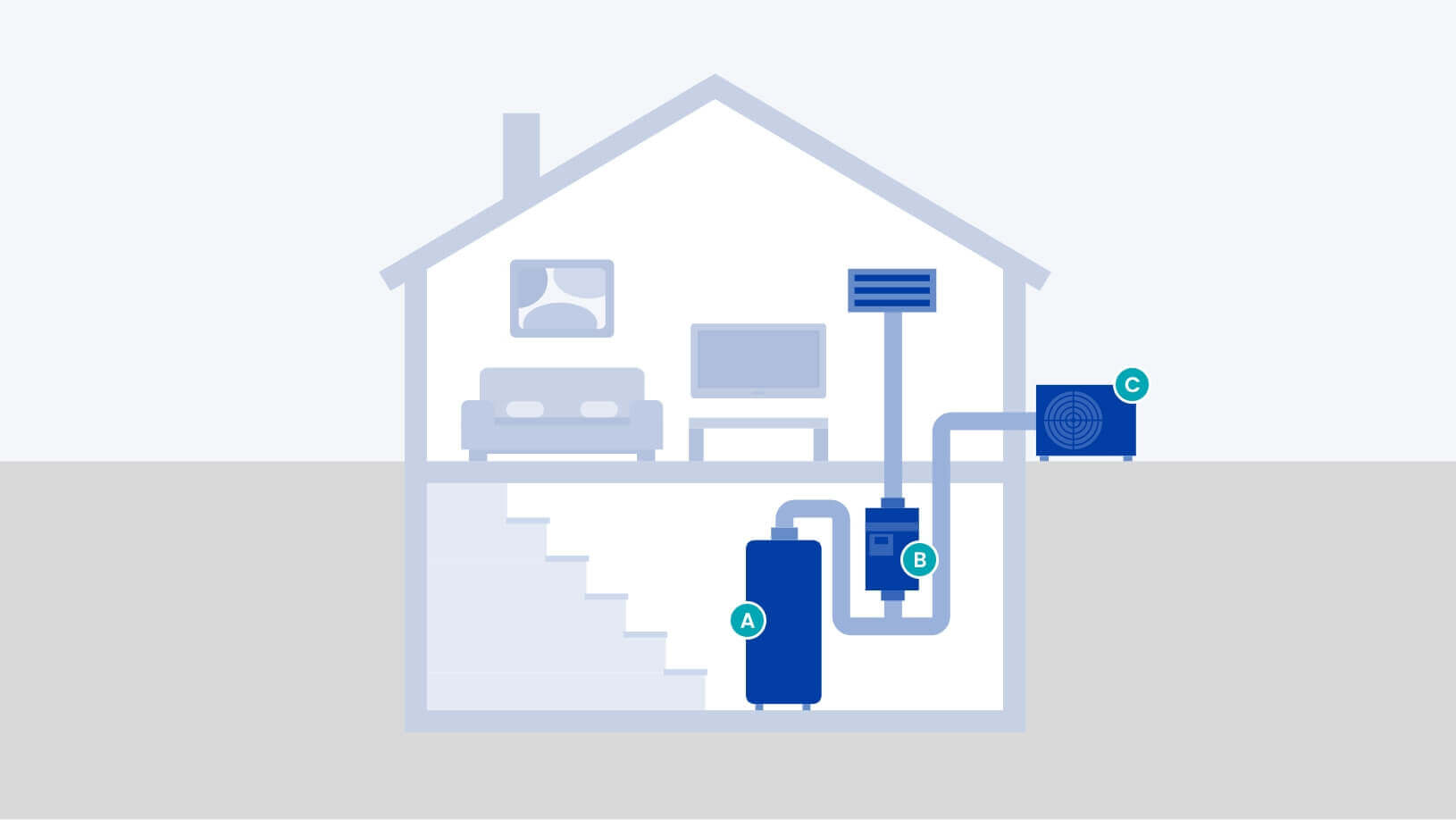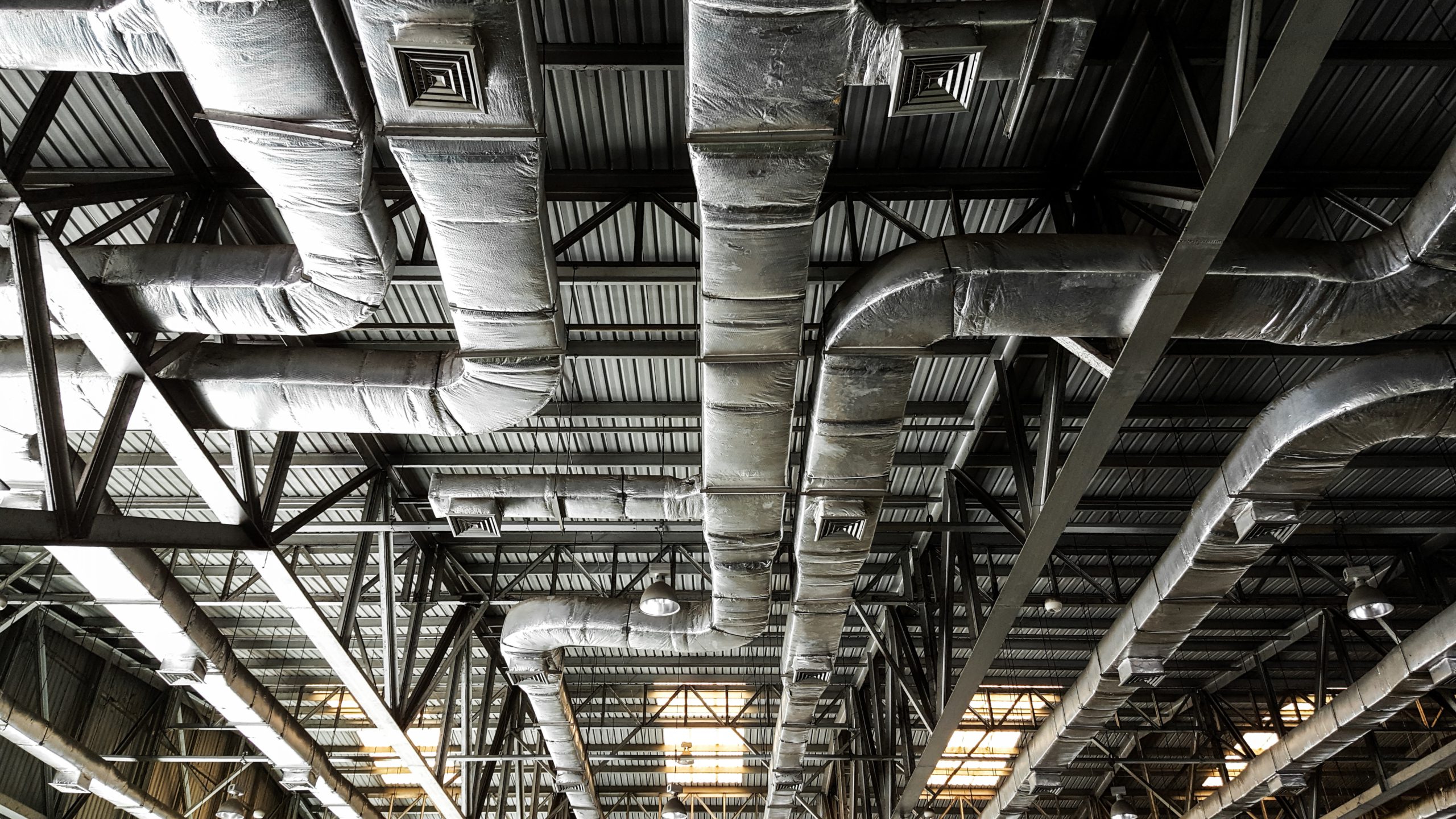HVAC Contractor for Reliable Cooling And Heating Services
An Extensive Consider Heating And Cooling Solutions and Their Effect On Power Efficiency and Cost Cost Savings
With technological improvements like clever thermostats and high-efficiency parts, the potential for maximizing system efficiency is vast. As we check out the detailed relationship between Heating and cooling systems and operational costs, including the change towards ecologically friendly options, the inquiry arises: just how can these methods be effectively applied to optimize both economic and eco-friendly benefits?

Significance of HVAC Systems
a/c systems are a vital element of contemporary structures, playing a crucial function in preserving healthy and balanced and comfy indoor settings. These systems, including heating, air, and air flow conditioning, are vital for managing temperature level, humidity, and air high quality, therefore making sure the wellness of passengers. Effective cooling and heating systems add substantially to producing an ideal indoor climate, which is crucial for both property and industrial spaces.
In industrial buildings, a/c systems are indispensable to giving a effective and risk-free environment. By regulating interior environment problems, these systems help prevent the growth of mold and the spread of air-borne contaminants, therefore protecting the health and wellness of staff members and clients. In addition, in domestic settings, a/c systems enhance living problems by using consistent thermal convenience and improving interior air top quality, which is essential for overall health and wellness.
In addition, the design and maintenance of a/c systems have a direct effect on power usage and operational expenses. Properly designed and maintained systems can substantially minimize power usage, bring about minimized energy costs and a smaller sized carbon footprint. The efficiency of these systems thus plays a critical role in advertising sustainability and energy preservation within buildings, highlighting their significance in the modern building landscape.
Advances in HVAC Innovation
Development in heating and cooling innovation is reinventing the means structures manage indoor climates, ushering in a new age of effectiveness and control. Recent innovations have concentrated on optimizing energy intake while enhancing user comfort. One significant advancement is the assimilation of wise thermostats, which utilize expert system to discover occupancy patterns and readjust temperatures as necessary, reducing unneeded power usage.
Variable Refrigerant Circulation (VRF) systems stand for an additional considerable jump forward. These systems enable for exact temperature level control in various areas of a structure, boosting convenience and reducing power waste. VRF modern technology is specifically useful for big industrial rooms, using flexibility and scalability.
Furthermore, the arrival of Internet of Points (IoT) gadgets has changed a/c systems right into interconnected networks efficient in real-time information collection and analysis. This connectivity makes it possible for anticipating upkeep, guaranteeing systems run at peak efficiency and lessening unexpected downtime.
Furthermore, improvements in products and layout, such as making use of high-efficiency coils and compressors, have boosted total system efficiency - Heating Contractor. The adoption of environmentally friendly cooling agents additionally highlights the industry's commitment to sustainability
These technological innovations are essential in decreasing functional prices and environmental effect, establishing brand-new requirements for building climate administration.
A/c Upkeep and Efficiency
Making sure optimum efficiency of a/c systems prolongs past technical innovations; it additionally depends upon efficient upkeep techniques. Normal upkeep is vital for maintaining efficiency, lowering energy consumption, and extending the life period of HVAC systems. The primary objective is to ensure that all parts work at their peak possibility, therefore reducing power wastage and preserving constant indoor comfort degrees.
Routine maintenance tasks, such as cleaning or changing air filters, examining cooling agent levels, and evaluating ductwork for leakages, are necessary for stopping unneeded strain on Website the system. Stopped up or dirty filters can block air flow, triggering the system to work tougher and take in even more power. Furthermore, poor cooling agent levels can lower cooling down efficiency, resulting in higher functional prices.
Additionally, routine assessments by certified specialists can identify potential issues prior to they intensify right into costly repair work or system failings. These inspections commonly include examining electrical links, calibrating thermostats, and guaranteeing the total honesty of the cooling and heating system. By addressing small problems early, property owners and companies can stay clear of unforeseen breakdowns and enhance energy efficiency.
Economical HVAC Solutions
For those wanting to get the most out of their air flow, air, and home heating conditioning systems without damaging the bank, exploring economical heating and cooling solutions can make a considerable difference. One immediate step is to buy programmable thermostats, which permit users to set details temperatures for various times of the day, maximizing power use and reducing unneeded intake. By automating temperature adjustments, homeowners can accomplish substantial cost savings on power costs.
Normal upkeep is another critical part of cost-efficient heating and cooling monitoring. Ensuring that filters are cleaned up or replaced regularly, ductwork is sealed, and systems are serviced read more by professionals can avoid expensive repair services and enhance system long life. Preventative upkeep not only maintains system effectiveness but likewise helps in staying clear of unanticipated breakdowns that can cause expensive emergency situation repair work.
Furthermore, retrofitting existing systems with energy-efficient components, such as variable speed electric motors or high-efficiency compressors, can be a prudent investment. These upgrades improve functional effectiveness, reduce energy usage, and can typically be carried out at a fraction of the cost of a complete system substitute.
Environmental Effect Decrease
Decreasing the ecological effect of cooling and heating systems is vital in today's quest of sustainable living. Cooling and heating systems are significant contributors to energy consumption, making up almost 40% of energy use in commercial buildings. This power demand commonly relies upon nonrenewable fuel sources, resulting in greenhouse gas emissions and ecological degradation. Transitioning to more reliable systems, such as those using renewable resource sources, can significantly reduce these effects.
Technical advancements in heating and cooling layout and operation, consisting of the combination of clever thermostats and energy-efficient heatpump, are pivotal in reducing carbon impacts. These developments enable optimized power use, decreasing wastage and enhancing overall system efficiency. In addition, embracing regular maintenance techniques guarantees heating and cooling systems operate at peak effectiveness, more curtailing unnecessary energy usage.
Additionally, making use of eco-friendly refrigerants is crucial, as traditional cooling agents, like CFCs and HCFCs, have actually been phased out because of their ozone-depleting residential or commercial properties. Modern choices, such as hydrofluoroolefins (HFOs), offer lowered ecological dangers, straightening with worldwide ecological protocols. By embracing these lasting techniques, cooling and heating services can play a transformative role in reducing ecological effects, promoting power efficiency, and fostering a more lasting future.
Final Thought

Additionally, the style and upkeep of Cooling and heating systems have a straight effect on power usage and operational costs. Regular upkeep is vital for maintaining performance, minimizing power usage, and expanding the life period of Cooling and heating systems. Heating and cooling systems are considerable contributors to power usage, accounting for virtually 40% of energy usage in commercial structures. In addition, embracing routine maintenance methods makes sure Heating and cooling systems operate at peak effectiveness, further stopping unnecessary energy Clicking Here usage.
The transition to ecologically pleasant HVAC systems even more advertises and lowers functional prices sustainability. (Heating Contractor)